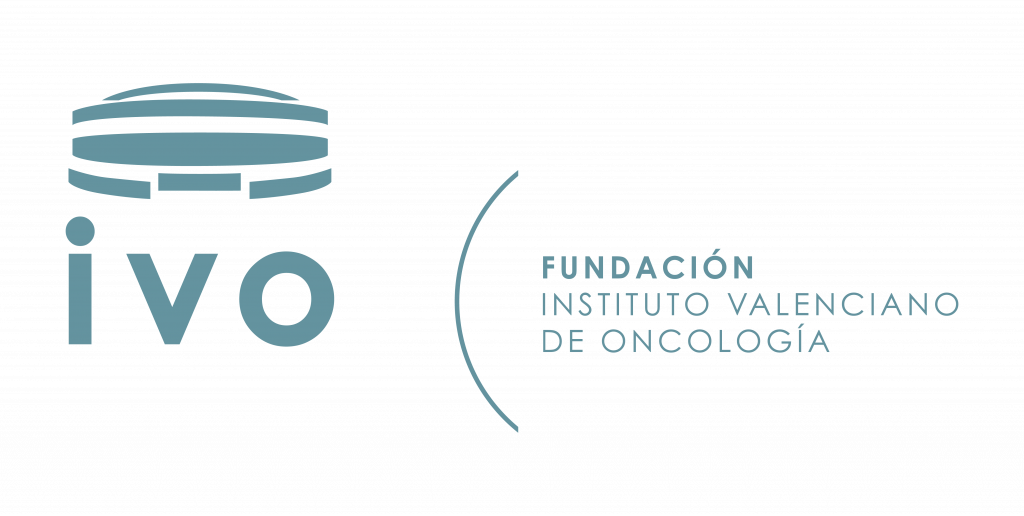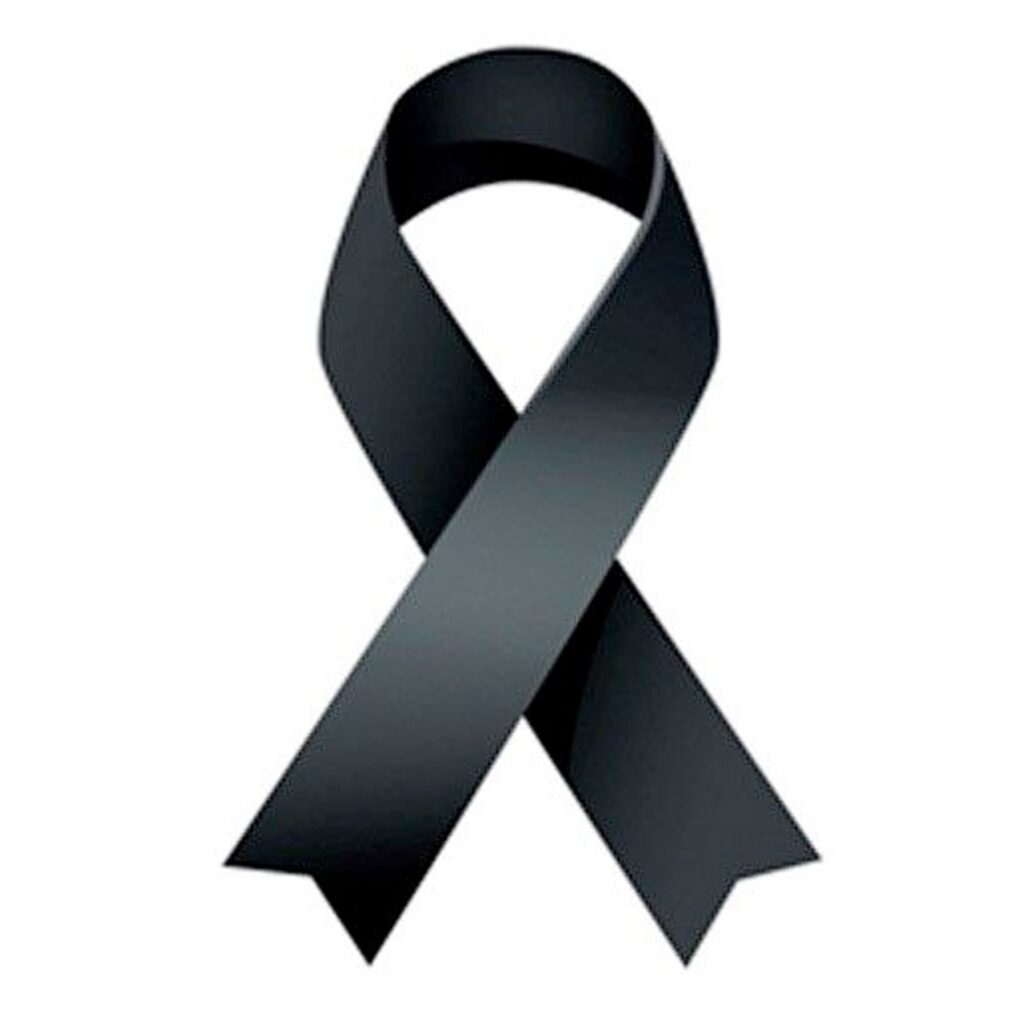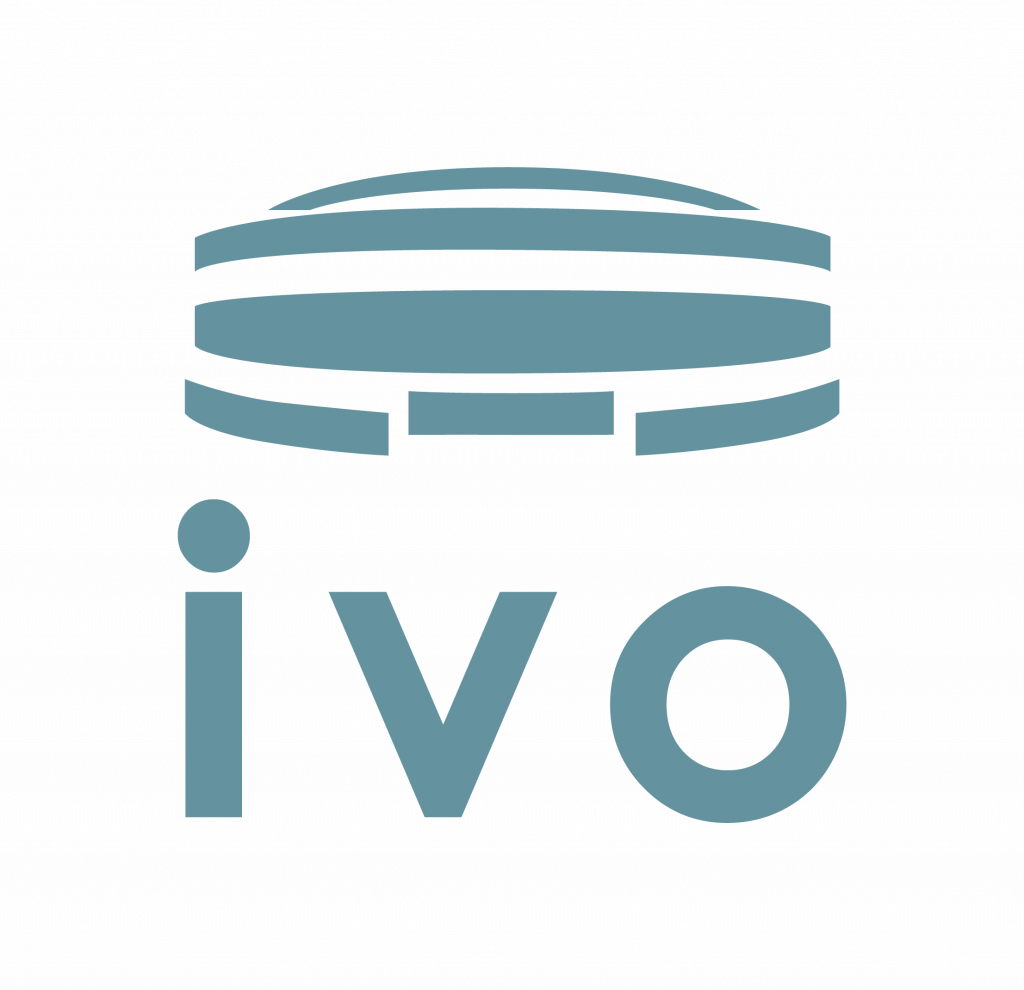Nuclear Medicine uses radiopharmaceuticals mainly for diagnostic purposes (diagnostic imaging), but also for therapeutic purposes and for medical research.
The non-invasive nature of these techniques, their lack of side effects, and their high diagnostic efficacy in detecting functional/metabolic changes make them an important tool, mainly in the field of oncology.
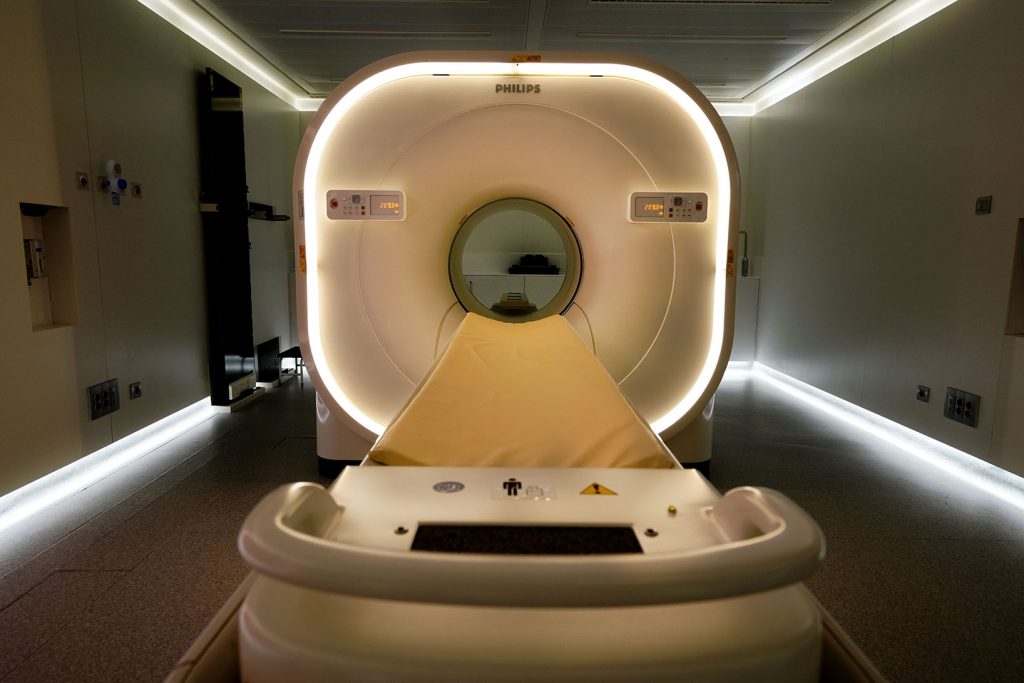
The service actively participates in the hospital’s different Tumour Committees (breast, gastrointestinal, lung, head and neck, lymphoma, melanoma, etc.)
The Nuclear Medicine service avails of a quality management system in conformance with the Standard UNE-EN ISO 9001:2015
Technological Equipment and Activity
The Nuclear Medicine Service at the IVO Foundation currently plays a leading role in the diagnosis of oncological illnesses, thanks to the thorough renovation of equipment carried out. In this sense, it currently avails of:
- PET-CT
- SPECT-CT Gamma Camera
- Metabolic Therapy Unit
- Radioguided Surgery
- Tumour Committees
Positron emission tomography linked to a computed tomography scan with digital detection, which allows greater sensitivity and improved detectability of small lesions (compared to most PET scanners currently in use), with faster results and smaller radiopharmaceutical doses. PETprovides metabolic information on the different tissues and organs and can detect early alterations in certain pathologies, mainly oncological ones, but also neuropsychiatric, cardiac or inflammatory pathologies; for example, before morphological changes are evident.
The IVO has been performing PET scans since the technology was first introduced in Spain, back around year 2000. PET-CT studies are the preferred choice in many oncological pathologies. Their operation is based on the fact that the increased consumption of glucose in tumour cells facilitates the localisation of lesions with a high degree of accuracy, allowing the local extension of the cancer to be defined, as well as the existence of more distant signs of disease and, lastly, it allows for an early assessment of the response to the treatment applied.
Single-photon emission computed tomography (SPECT) and computed tomography (CT). This is the only model of its type in Spain, which signals innovation in the state-of-the-art technology for gamma camera detectors, offering an imaging system for nuclear medicine with the best characteristics up to the present.
Another distinguishing feature of the Nuclear Medicine Service is that it has a Metabolic Therapy Unit, where radiopharmaceuticals are administered for therapeutic purposes in various oncological pathologies. In this regard, it is worth highlighting the treatment with I-131 for differentiated thyroid cancer, lutetium 177-peptides for metastatic neuroendocrine tumours, or lutetium 177-PSMA for prostate cancer.
The participation of Nuclear Medicine in the oncological-surgical field through the performance of radioguided surgery (selective detection of the sentinel node in various tumours, mainly in breast cancer, though also in melanomas, tumours in the head and neck, or gynaecological or urological tumours, or radiolocation of hidden lesions). The experience gained over the years in this technique has spread worldwide.
The service actively participates in the hospital’s different Tumour Committees (breast, gastrointestinal, lung, head and neck, lymphoma, melanoma, etc.), where a multidisciplinary team of professionals sets the therapeutic strategy for each patient and their monitoring.
Nuclear medicine is a fundamental area in oncology that is involved in 80-90% of the diagnostic procedures performed on these patients. The IVO is using the latest, state-of-the-art technology after purchasing two state-of-the-art devices for oncological diagnostics:
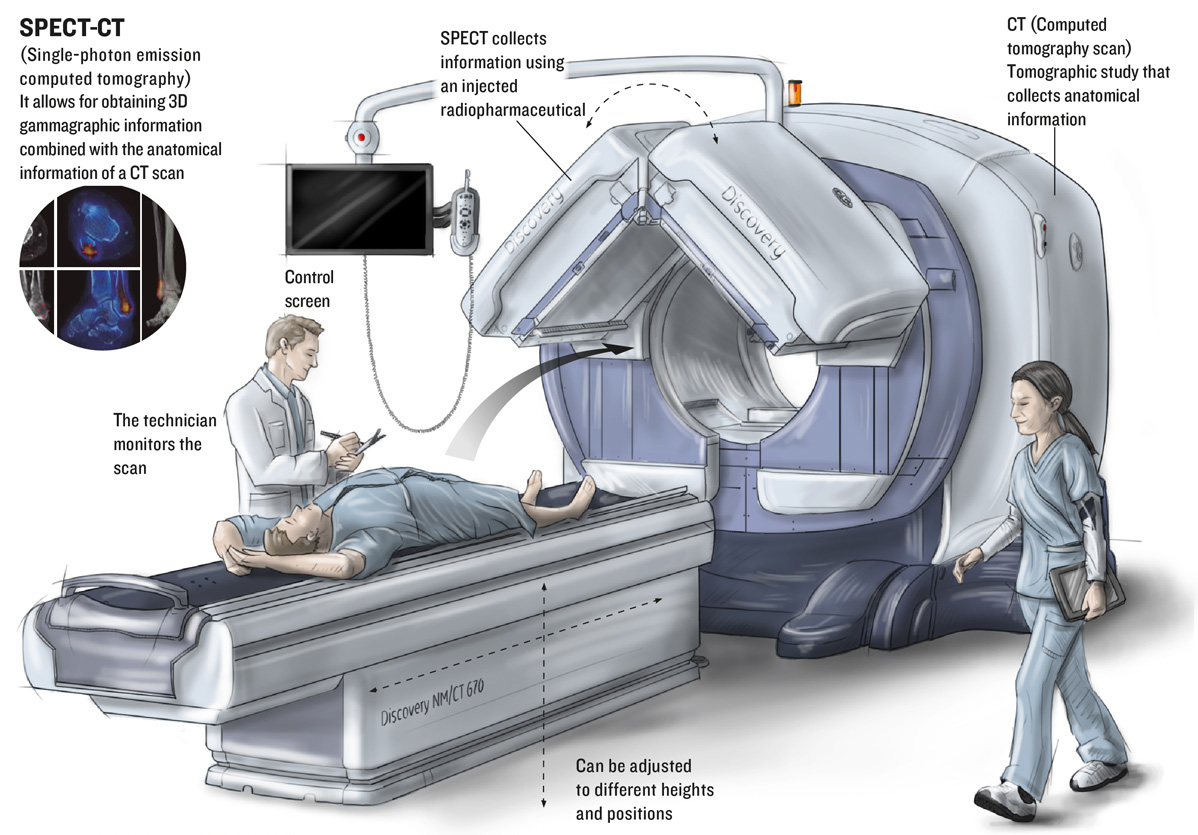
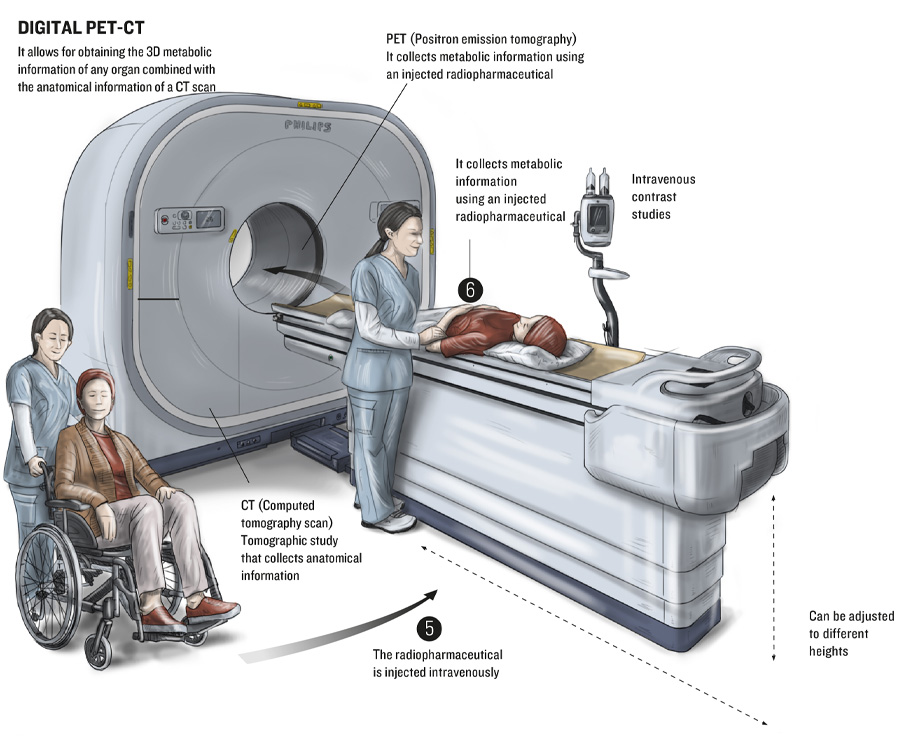
The PET radiopharmaceutical dispenser administers individual doses of PET radiopharmaceuticals according to patient characteristics.
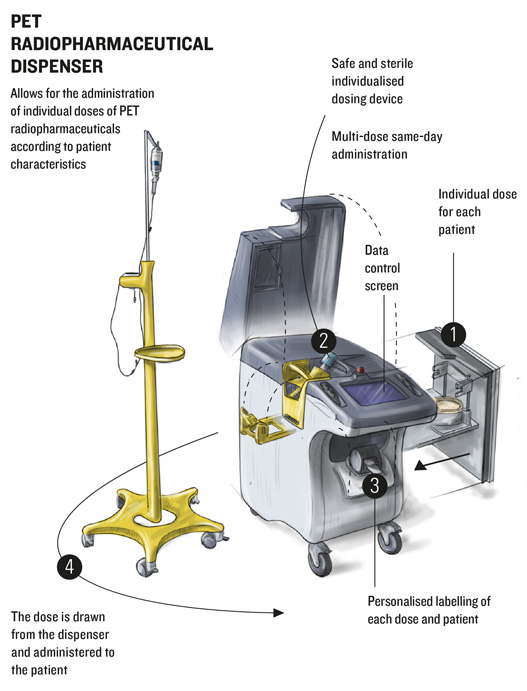
Nuclear Medicine Service Medical Team
Head of Service
Head of Section
Associated Doctors
Dra. Laura Asensio Valero
Dr. Víctor Manuel Cardona Cardona
